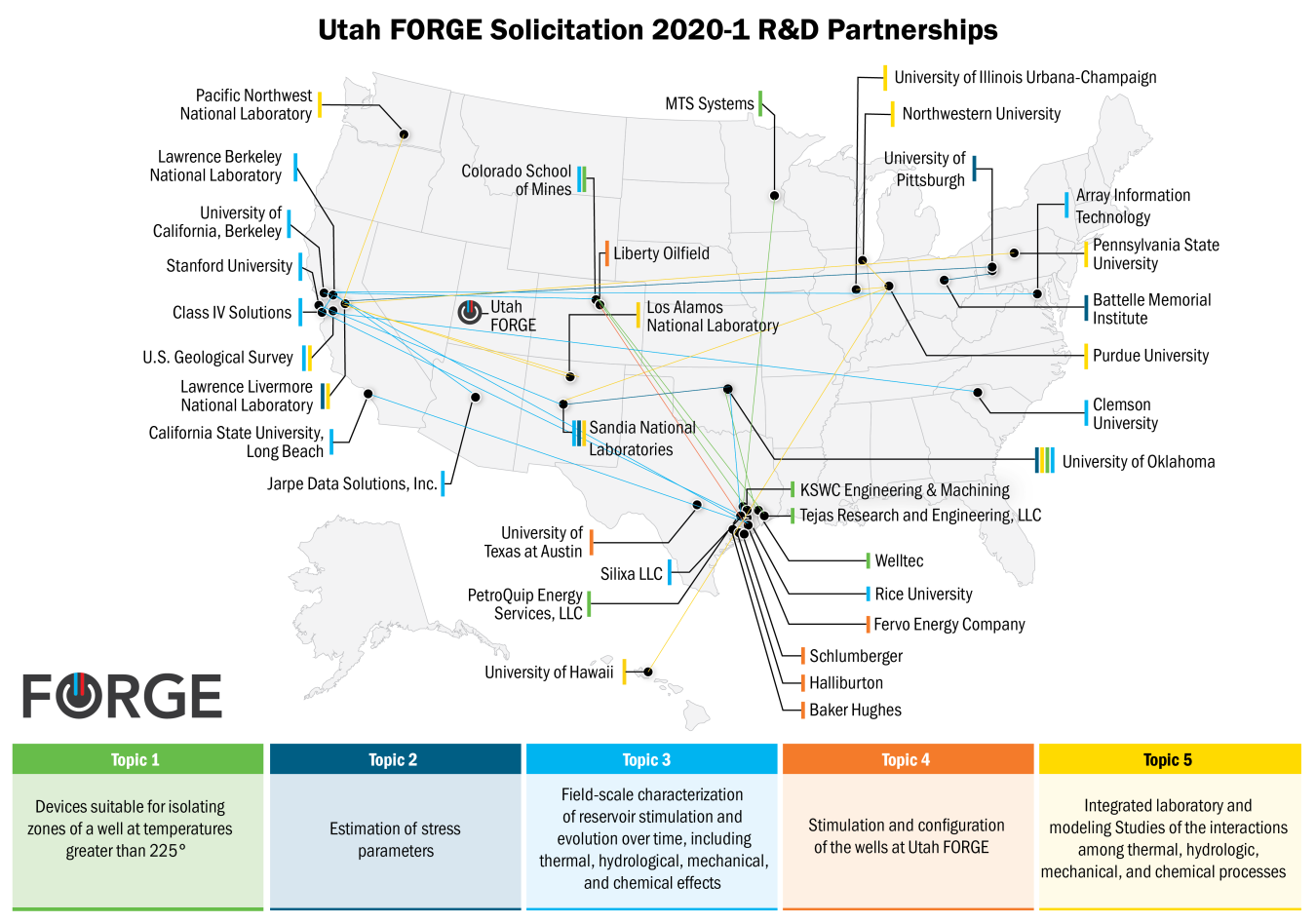The Geothermal Technologies Office’s largest initiative, the Utah Frontier Observatory for Research in Geothermal Energy (FORGE), has kicked off its first portfolio of research and development projects following Solicitation 2020-1.
Geothermal Technologies Office
May 19, 2022Over the past year the Geothermal Technologies Office’s (GTO) largest initiative, the Utah Frontier Observatory for Research in Geothermal Energy (FORGE), kicked off its first portfolio of research and development projects following Solicitation 2020-1. Released in April 2020, this was the first R&D solicitation managed and administered by University of Utah as part of the FORGE initiative. The resultant portfolio of 17 projects covers testing and evaluation of new and innovative enhanced geothermal systems tools and techniques and has a combined total funding of $46 million over the next three years. Learn more about the projects' objectives and visit Utah FORGE’s website for more information.
| Topic | Awardee |
| Topic 1: Devices suitable for isolating zones of a well at temperatures greater than 225°C | Welltec PetroQuip Energy Services Colorado School of Mines |
| Topic 2: Estimation of stress parameters | Battelle Memorial Institute Lawrence Livermore National Laboratory University of Oklahoma |
| Topic 3: Field-scale characterization of reservoir stimulation and evolution over time, including thermal, hydrological, mechanical, and chemical effects | Clemson University Stanford University Lawrence Berkeley National Laboratory Rice University |
| Topic 4: Stimulation and configuration of the well(s) at Utah FORGE | Fervo Energy Company University of Texas at Austin |
| Topic 5: Integrated laboratory and modeling studies of the interactions among THMC processes | Pennsylvania State University Lawrence Livermore National Laboratory U.S. Geological Survey University of Oklahoma Purdue University |
Also, in April of this year, the Utah FORGE team successfully completed a three-stage hydraulic stimulation of its first highly deviated injection well, an important phase of the project and a key milestone in creating a fully human-made geothermal reservoir. The stimulation involved injecting fluid into rocks at high pressures to create new fractures and make the rocks permeable and able to harness geothermal. Initial results are promising, and after the new subsurface reservoir is mapped the FORGE team anticipates drilling the second full-size wellbore in early 2023. With continued success, FORGE has the potential to chart a commercial pathway for further EGS development. Read the full success story about this GTO initiative.


